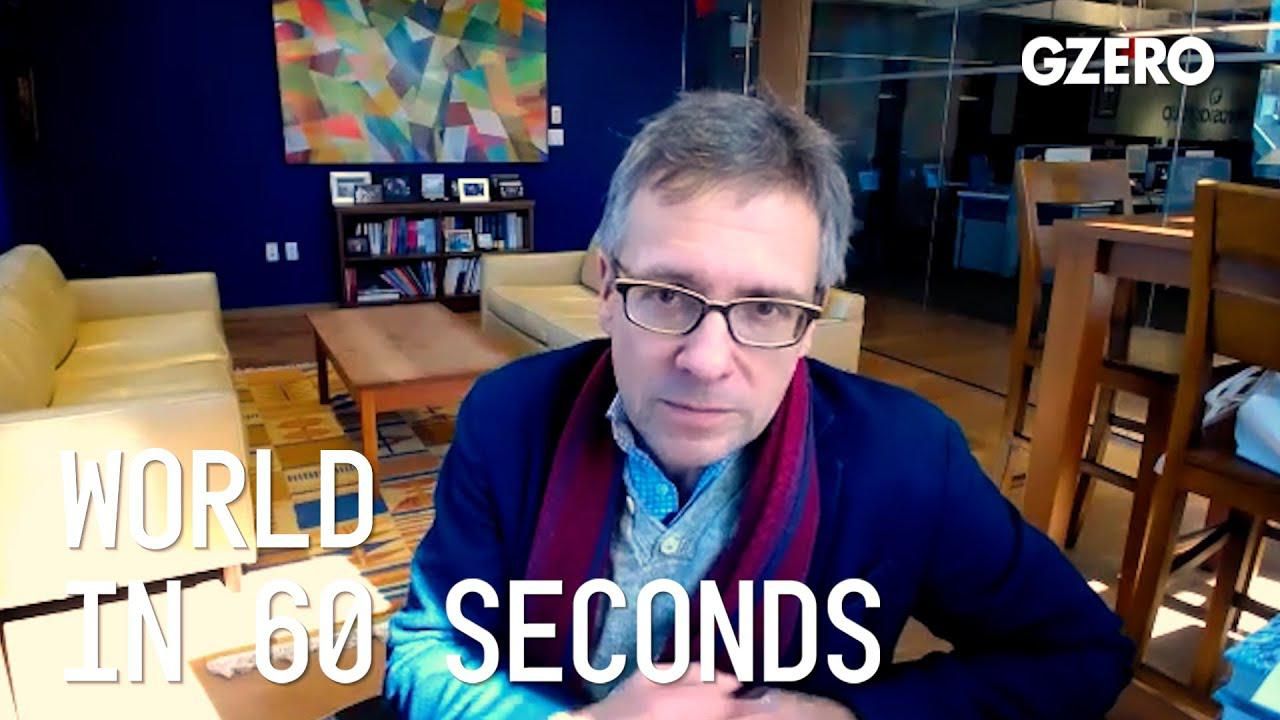Ian Bremmer discusses the World In (a little over) 60 Seconds:
The Biden administration announced its first sanctions. How will it affect US-Russia relations?
Not very much. About as bad as they were under the Trump administration, even though Trump personally wanted to be aligned with Putin, the administration was not. This is the same approach on sanctions as we've seen from the European Union, they could go a lot harder. It's not sector level. It's not major state enterprises. It's a few Russian officials that were involved in the chemical program for Russia. And at the end of the day, the Russians are annoyed, but they're not going to hit back. That's that. Okay.
Myanmar's protests are getting more violent. Will it get worse and how will end?
It's hard to imagine it not getting worse. I mean, now you see dozens getting killed in one day. The fact is that Aung San Suu Kyi would be allowed back in government eventually, probably, if that meant that the military still was able to control the elections. I can't see her being willing to do that and provide the legitimacy. And so, as a consequence, you kind of have a standoff where they can push the elections earlier, but it's going to be unfree and unfair. And that means that Myanmar is going to still be run by the military. And the Chinese government is more than happy with that. You are starting to see some other governments in the region trying to act as conduits for discussion to see if a compromise can be worked out because clearly the violence is troubling. Hard to see it happening. So again, this is going to get uglier before it gets better.
What's the story with former French President Nicholas Sarkozy going to jail?
Well, he has a three-year sentence, two of which has been suspended, but one is going to be house arrest. First time you've seen that from a former French president, and for corruption for influence peddling. And so, that's a pretty big precedent in France. We've already seen it, of course in Italy with Berlusconi. Big question is, do we see it in the United States? People will be talking about that, no question.
More For You
At the 2026 World Economic Forum in Davos, GZERO’s Tony Maciulis spoke with Ariel Ekblaw, Founder of the Aurelia Institute, about how scaling up infrastructure in space could unlock transformative breakthroughs on Earth.
Most Popular
On Friday, US officials warned the transitional council in charge of Haiti not to remove interim Prime Minister Alix Didier Fils-Aimé, ahead of a deadline for the council to step down on Feb. 7.
The president of the tiny eastern European country has suggested possibly merging with a neighbor.
Hard numbers: US pitches “New Gaza,” Japan paves way for snap elections, “Sinners” smashes records, & More
$25 billion: The minimum amount of investment required to fulfil Jared Kushner’s ambitious property plan for Gaza.
